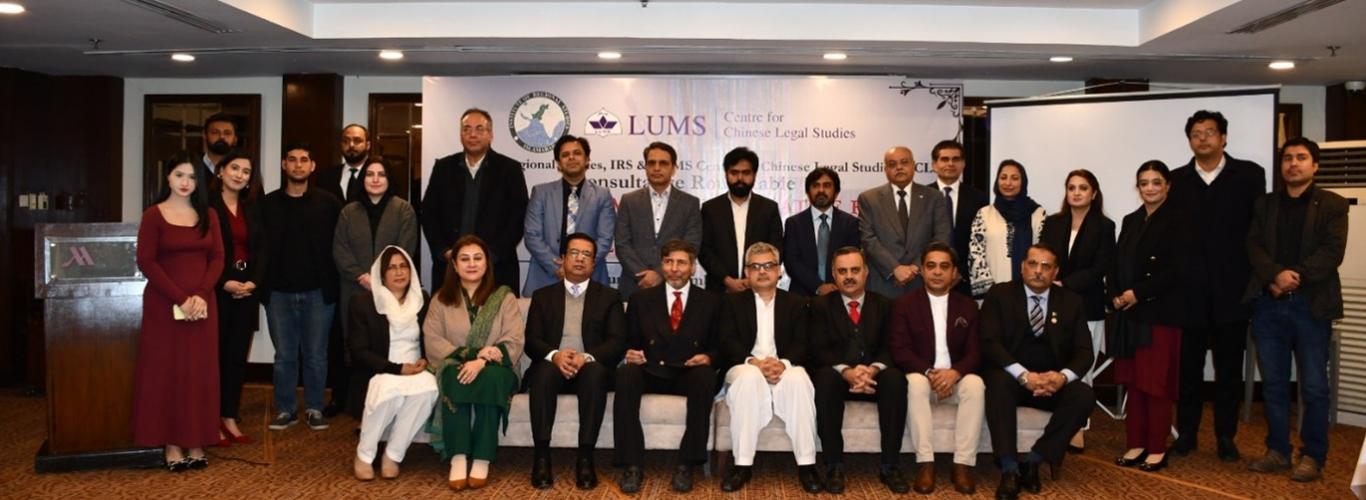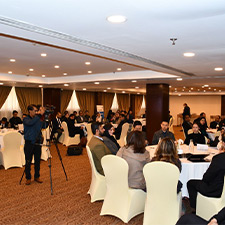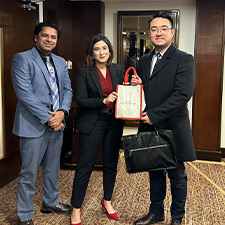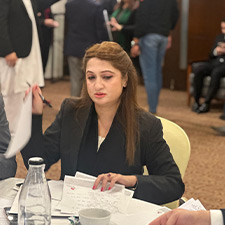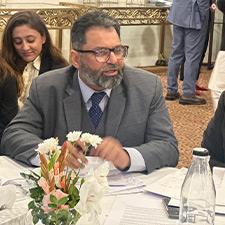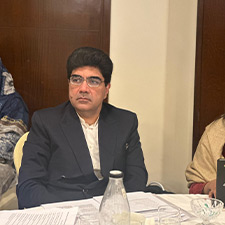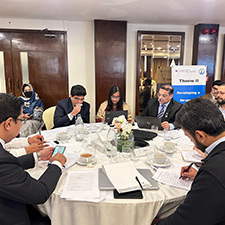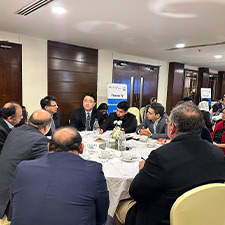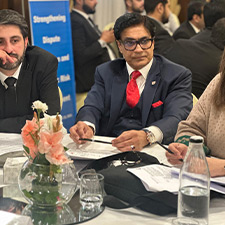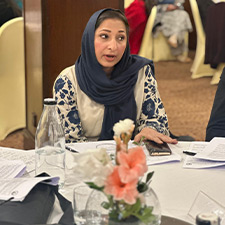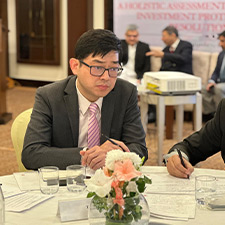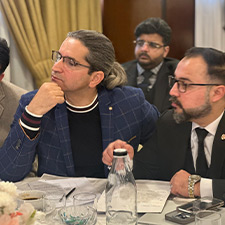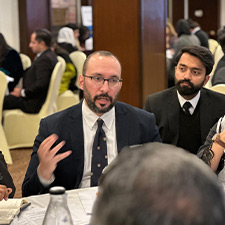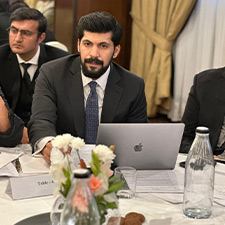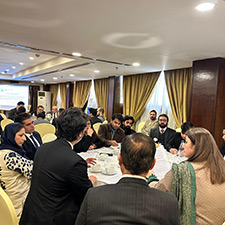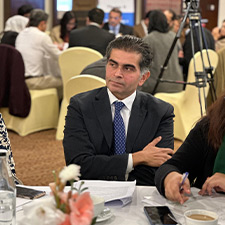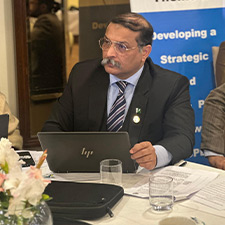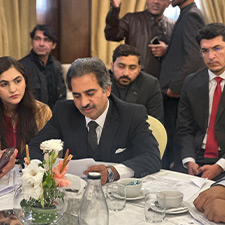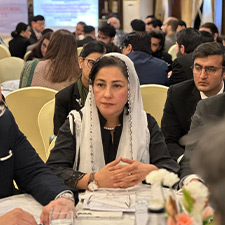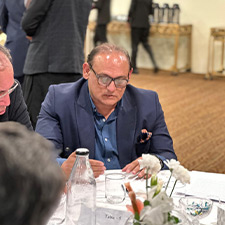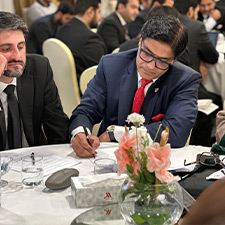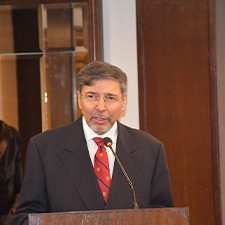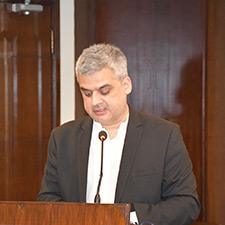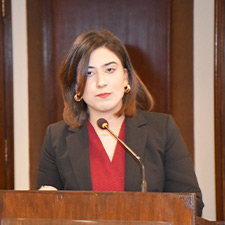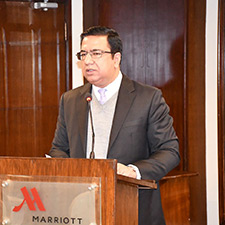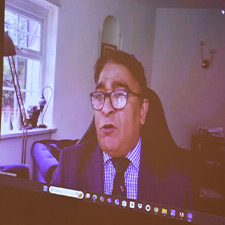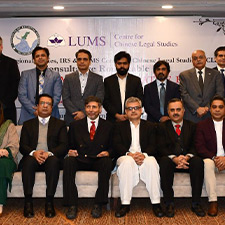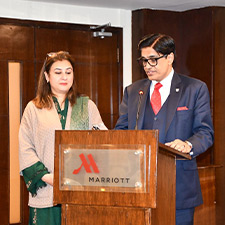Centre for Chinese Legal Studies and Institute of Regional Studies Host High-Profile Consultative Roundtable to Shape the Future of CPEC—Focusing on Legal Reforms, Investment Protection, and Dispute Resolution
The Centre for Chinese Legal Studies (CCLS) at the Shaikh Ahmad Hassan School of Law (SAHSOL), Lahore University of Management Sciences (LUMS), in collaboration with the Institute of Regional Studies (IRS), hosted a high-level consultative roundtable at the Marriott Hotel, Islamabad. The event focused on legal reforms, investment protection, and dispute resolution frameworks under CPEC Phase II. Opening remarks were delivered by Ambassador Jauhar Saleem, President of IRS, and Dr. Sikander Ahmed Shah, Director of CCLS and faculty member at SAHSOL. They emphasized the importance of policy modernization, judicial adaptability, and cross-border cooperation to ensure economic stability and investment security under CPEC.
The keynote address was delivered by Honourable Justice Syed Mansoor Ali Shah, Senior Puisne Judge of the Supreme Court of Pakistan, who served as the Chief Guest. Justice Shah highlighted that CPEC and the BRI symbolize regional continuity and shared prosperity and proposed establishing a “Judicial Silk Road” between Pakistan and China, aimed at creating an alternative dispute resolution (ADR) system tailored for Belt and Road Initiative (BRI) and CPEC-related disputes. Justice Shah emphasized the need for legislative reforms to operationalize these systems and encouraged judicial dialogues between China and South Asian countries to create harmonized dispute resolution frameworks aligned with international standards. He noted that BRI and CPEC introduce a new language of ADR, enabling efficient settlement mechanisms and fostering legal certainty to promote regional economic integration.
Domestically, Justice Shah highlighted the need for specialized commercial courts and ADR mechanisms to address the complexities of cross-border trade and infrastructure development. He advocated for a network of arbitration centers and mediation frameworks to deliver accessible and culturally responsive ADR solutions. He also recommended institutional reforms, including the establishment of ADR systems in all 138 districts of Pakistan, supported by legislative amendments to operationalize these frameworks.
Justice Jawad Hassan of the Lahore High Court, serving as the Guest of Honour, elaborated on the role of ADR in fostering investment-friendly legal systems. He discussed his contributions to Pakistan’s first Commercial Courts and emphasized integrating mediation, arbitration, and conciliation into the judicial process to expedite commercial dispute resolution, reduce judicial backlogs, and enhance investor confidence. He further stressed the importance of embedding ADR clauses in CPEC contracts and business agreements.
Dr. Khalid Taimur Akram, Executive Director of PRCCSF, underscored the significance of regional cooperation and economic diplomacy in advancing CPEC Phase II. He called for policy harmonization to facilitate cross-border investments and ensure legal stability for investors. Dr. Tariq Mahmood, Fellow of the Chartered Institute of Arbitrators (FCIArb), praised judicial support for ADR and recommended introducing small claims schemes for disputes under Rs. 2-3 crore and adopting expedited arbitration rules. He also advocated for ratifying the Singapore Convention on Mediation to enhance the enforcement of mediated settlements and reduce court caseloads through out-of-court resolutions.
The roundtable featured insights from leading legal and policy experts, including Ms. Riffat Inam Butt, Secretary of the Law and Justice Commission of Pakistan, who emphasized judicial efficiency and regulatory reforms to promote sustainable investment growth. Brigadier Shozab Majeed, Director of International Law at the Ministry of Defence, discussed security frameworks for enabling regional cooperation and ensuring investment protection. Contributions were also made by Mr. Aziz Qazi, Vice Chairman of the Islamabad Bar Council, Mr. Muzaffar Ahmed Mirza, Chief Prosecutor and Head of Legal Affairs at SECP, Barrister Mian Sheraz Javaid, Chairman of CIArb Pakistan; Ms. Sarah Tarar, Dean of ICLS and Consultant Mediator at the World Bank; Mr. Rana Sajjad, Founder of CIICA; Mr. Shahzar Ilahi, Co-founder of MICADR; Barrister Zopash Khan, Co-Chair, Society of Mediators; Barrister Nudrat Majeed, Partner at Four Road Gold Chambers; Mr. Sheikh Muhammad Ali, Chairman of Lahore High Court Bar ADR Committee; Mr. Shahid Mehmood Khokhar, Chairman of the Implementation Tribunal for Newspaper Employees (ITNE and Ms. Sibah Farooq, legal expert and panelist.
The roundtable also featured renowned experts and stakeholders gathered to discuss key aspects of CPEC. Distinguished attendees included diplomats from the Chinese Embassy.
Breakout sessions allowed participants to develop actionable strategies for legislative reforms, capacity-building programs, and multi-tiered ADR frameworks to manage cross-border disputes effectively. Discussions emphasized the need for judicial training programs, institutional reforms, and ADR mechanisms to safeguard investments and foster economic growth under CPEC Phase II.
The roundtable concluded with a reaffirmation of Pakistan’s commitment to creating investment-friendly legal systems, strengthening dispute resolution frameworks, and leveraging CPEC and BRI’s potential to promote regional economic integration and sustainable growth.
Watch Full Videos here
Media Gallery

